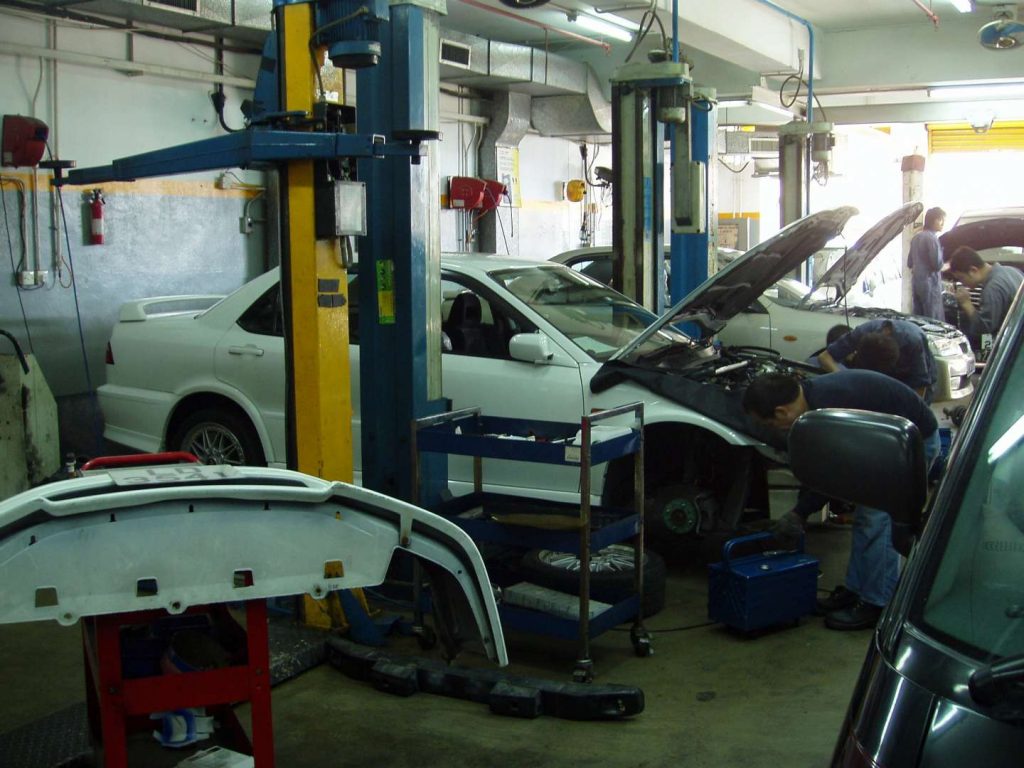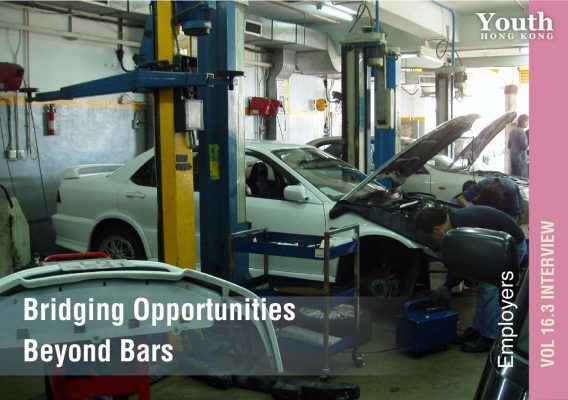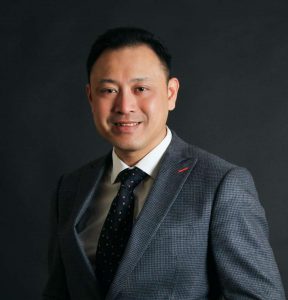//16.3 Interview 3: Employers
Bridging Opportunities Beyond Bars
by Mia Yao and Lakshmi Jacota
With existing negative stereotypes, ex-offenders often find themselves in a vicious cycle of trying to find jobs and reintegrate. We talked to enterprises that try to break this social stigma, act as bridges and provide opportunities post-incarceration.
A critical aspect of reintegrating young offenders back into the community is ensuring that they have opportunities to find employment. Not only does this provide financial stability and a sense of belonging, but it also fosters the development of discipline and responsibility.
Unfortunately, social stigma and prejudice often take hold, making many enterprises and businesses hesitant to hire ex-offenders. As May Wong, from the Fullness Christian Vocational Training Centre which provides vocational training and support for ex-offenders, said in a written interview, “People struggle with how to take the first step, fearing that being too enthusiastic might be misinterpreted as taking ‘pity’, while pretending that one doesn’t care, might seem unwelcoming. Balancing these concerns requires careful consideration.”
With negative labelling – from being called a “bad person” to being defined as a “burden” – the chances of employment remain minimal at best, with only limited opportunities in the cleaning, security, delivery and transportation sectors.
Often, these jobs might be temporary or on short contracts and are usually low-paying, exacerbating instability and the sense of alienation from full integration.
Priscilla Ho, Senior Manager of SideBySide, a Hong Kong organisation that exists to provide rehabilitation and multifarious services for the betterment of ex-offenders, said that those with criminal records cannot even register for professional qualifications. This is especially prominent for those in insurance, banking, directorship roles, law and accounting. While some might argue that this is understandable, it does raise questions about what subjects offenders – especially those with access to further education while incarcerated – should realistically study.
An Exception to the Rule
Thomas Lau founded his accountancy company, Navigator Consultancy, in 2013. It is the first and only company in Hong Kong that offers jobs to ex-offenders in accountancy. A former employee of one of the “Big Four” accounting firms, Lau used to volunteer as an instructor in prisons for more than seven years.
In sharing his vision and mission with Youth Hong Kong, Lau realised that many inmates were financially literate and educated, but were unable to find jobs. He then decided to create an inclusive culture within his firm and began hiring ex-convicts. Over the past ten years, he has hired more than 40 people, introduced through the government, other organisational referrals, or direct applications.
“Being incarcerated can have a lasting impact on a person’s life, but it doesn’t mean people with criminal records are worthless,” Lau said. “Many people consider them worthless, but I see them as treasures.”
He highlighted three primary concerns businesses face when weighing up the prospect of employing reformed offenders.
Firstly, companies are cautious about their reputation and are unwilling to take risks. Lau provided an example: when faced with two candidates possessing equal skills, companies typically avoid hiring reformed offenders due to the potential negative impact on the company’s reputation should the individual reoffend.
Secondly, risk management plays a significant role. Companies are reluctant to place reformed offenders in high-risk positions, yet these individuals are often uninterested in low-risk jobs, leading to a mismatch.
Lastly, most companies lack experience in employing reformed offenders. While they may be open to the idea, department managers’ inexperience fosters an air of hesitation and concern.
The possible solution, Lau suggests, is that NGOs take the lead in hiring reformed offenders. “NGOs can be the bridge and role models to help these individuals reintegrate into society,” he said, which will demonstrate the feasibility of such initiatives and encourage other companies to follow suit.
Serving Up a Second Chance
One such organisation is Bright Services Co. Ltd, established by The Society of Rehabilitation and Crime Prevention Hong Kong (now called SideBySide) in 1997. Focused on socially disadvantaged groups, the company has led the way in providing various job opportunities to enhance their adaptability and streamline the reintegration process. The jobs offered cover sectors such as moving and logistics, cleaning and exhibition design, and project management. In 2017, So Bakery (甦爐), a cafe offering employment opportunities to ex-offenders, was started.
Similarly, MercyHK Canteen, a restaurant established by Oblate Father John Wotherspoon’s charity, also hires people with criminal records. The founder explains the rationale behind his dim sum restaurant is to give people a second chance. “Most people when they come out of prison cannot get a job; they cannot find a place to stay; they get back into trouble,” he told Young Post in a previous interview. Since it opened, the canteen has served over 60 people a day, and customers lend a helping hand to support needy people. Father John hopes that other businesses in the city will follow suit.
The Job is Not Done
While offering job opportunities is crucial, what society truly needs is a fundamental shift in attitude from the broader community. Nevertheless, May Wong highlighted the fact that the social stigma towards rehabilitated individuals has gradually lessened compared to the past. She said, “The public hopes to help them reintegrate and become self-reliant.” However, as Thomas Lau pointed out, this shift in perspective needs to go further: “Rather than simply giving ex-offenders a job to prevent reoffending, we should think about how to provide young people with a sense of purpose and motivation in life, enabling them to contribute to society.”
This sentiment was echoed by an employee at MercyHK Canteen. “For those who have made mistakes, many are genuinely committed to turning their lives around. I hope society can offer us more job opportunities, reduce prejudice, and foster inclusivity.” ■

The Fullness Garage, under Fullness Christian Vocational Training Centre, is one of Hong Kong’s first Work-Integration Social Enterprices (WISE). The WISE concept emerged in the mid-20th century, characterised by vocational rehabilitation initiatives.



